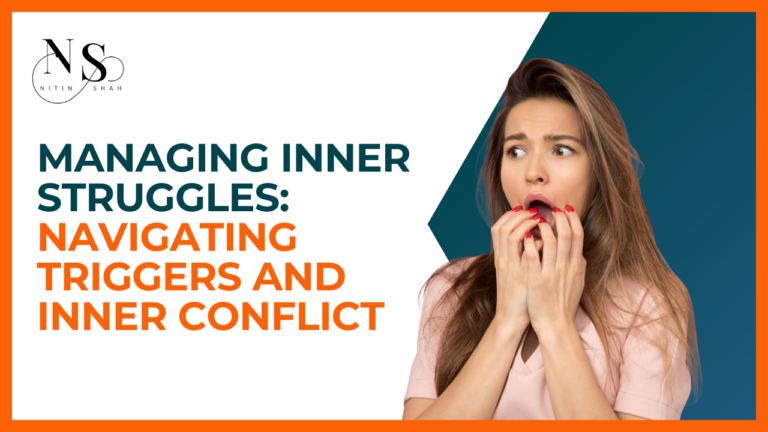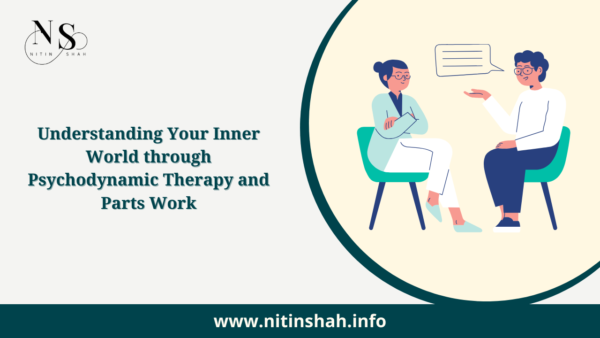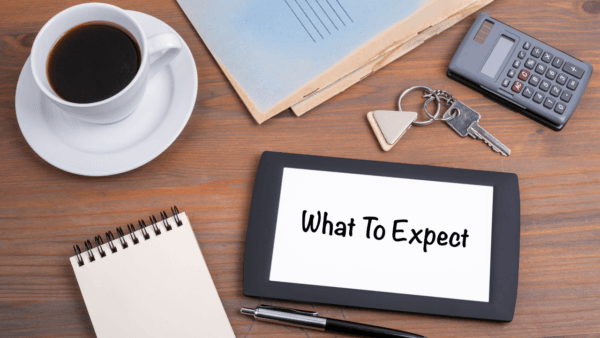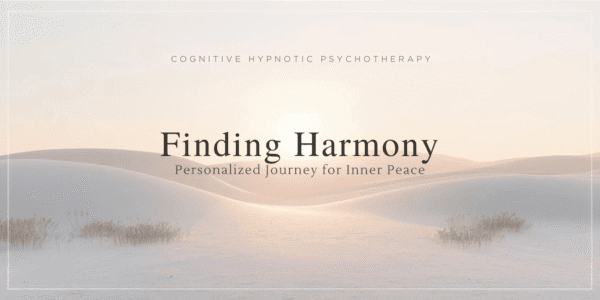Life often feels like a labyrinth of emotions, where our desires, emotions, and beliefs can clash, leaving us in a state of internal turmoil. This article is your guide through this maze, focusing on the triggers that ignite inner conflict. By understanding these triggers and the strategies to overcome them, you can embark on a journey of self-discovery and healing.
Understanding Inner Conflict
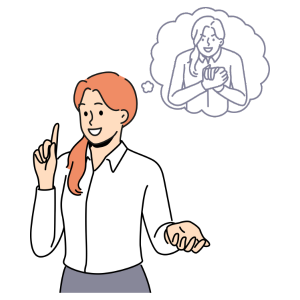
Let’s begin by revisiting what inner conflict is. It’s that inner struggle, a tug-of-war within ourselves that leads to emotional chaos and indecision. If left unresolved, it can cast a shadow on our well-being.
Identifying Potential Triggers
Definition of Triggers in the Context of Inner Conflict
Triggers are like emotional landmines. They’re situations or stimuli that set off intense emotional responses. Identifying these triggers is the first step towards untangling the knots of inner conflict.
Common Types of Triggers
- Personal Relationships: Our connections with others often serve as both a source of joy and a battlefield for inner conflicts. Family dynamics, friendships, and romantic relationships can act as triggers, stirring up conflicting emotions.
- Work and Career: Balancing passion with practicality at work can be a tightrope walk. Workplace dynamics, the pressure to succeed, and the quest for that delicate work-life balance often act as triggers.
- Past Traumas: The ghosts of our past, especially traumatic experiences, can haunt our present. Identifying and addressing these unresolved issues is crucial for untangling the web of inner conflict.
- Personal Goals and Aspirations: Dreams and aspirations are beautiful, but the journey to achieve them can trigger inner conflicts. The push and pull between short-term desires and long-term goals can lead to emotional turmoil.
- Societal Expectations: Society’s expectations often clash with our individual values, creating a breeding ground for inner conflicts. Navigating between cultural norms, gender expectations, and personal beliefs can be challenging.
- Self-Perception and Identity: How we see ourselves and how others see us can be a constant source of inner conflict. Issues with self-esteem, body image, and the fear of judgment are powerful triggers.
Personal Relationships as Triggers

Family Dynamics
Family can be both a sanctuary and a source of turmoil. Unspoken expectations, communication challenges, and the struggle to define individual roles within the family structure can trigger internal conflicts.
Friendships and Peer Relationships
Navigating friendships involves dealing with societal expectations and differing values. Peer pressure and conflicting interests can stir up inner conflicts in these relationships.
Romantic Relationships
Intimacy and vulnerability in romantic relationships can trigger fears and expectations. Managing the delicate balance between independence and partnership often leads to internal struggles.
Work and Career as Triggers
Job Satisfaction vs. Financial Stability
Choosing between a fulfilling job and financial stability can trigger intense emotions. The pursuit of passion versus practicality is a common dilemma leading to inner conflicts.
Balancing Work and Personal Life
The struggle to find equilibrium between professional demands and personal life often acts as a trigger. Juggling work responsibilities with personal commitments can create emotional turbulence.
Workplace Dynamics and Conflicts
Office dynamics, conflicts with colleagues or supervisors, and the constant pressure to meet professional expectations can be significant triggers. The workplace, being a space where we spend a substantial part of our lives, can amplify inner conflicts.
Past Traumas and Inner Conflict
Understanding the Impact of Past Traumas
Past traumas leave scars that can be easily triggered in the present. These unresolved issues influence our current behaviors and emotions, intensifying inner conflicts.
Unresolved Issues from Childhood
Childhood experiences, especially those left unaddressed, can become powerful triggers in adulthood. Trust issues, attachment struggles, or identity conflicts rooted in childhood may resurface.
Healing and Resolving Traumatic Experiences
Facing past traumas head-on is an essential step in resolving inner conflicts. Healing involves revisiting these experiences, understanding their impact, and finding ways to reframe them in a therapeutic context.
Personal Goals and Aspirations

Balancing Short-Term and Long-Term Goals
The journey towards personal growth often involves setting and achieving goals. However, balancing short-term desires with long-term aspirations can be tricky, triggering inner conflicts.
Unrealistic Expectations and Inner Conflict
Setting unrealistic expectations for ourselves can be a significant trigger. Falling short of these expectations can lead to feelings of inadequacy and failure, fueling inner conflicts.
Reassessing and Adjusting Goals
Life is ever-changing, and so are our goals. Reassessing and adjusting goals based on evolving circumstances is a vital aspect of managing inner conflicts. Flexibility in goal-setting reduces the likelihood of triggering conflicts.
Societal Expectations
Cultural and Social Norms
Cultural norms and societal expectations often collide with individual values, creating inner conflicts. Navigating between cultural conformity and personal authenticity can be a profound source of conflict.
Gender Roles and Expectations
Expectations tied to gender roles can be potent triggers. Struggling with societal expectations that don’t align with personal authenticity can lead to inner turmoil.
Managing Conflicts Between Personal Values and Societal Pressures
Striking a balance between personal values and societal pressures is an ongoing challenge. Managing this conflict involves finding a middle ground between authenticity and societal expectations.
Self-Perception and Identity
Body Image and Self-Esteem
Issues related to body image and self-esteem are pervasive triggers. Society’s unrealistic beauty standards often clash with individual perceptions, leading to self-doubt and conflict.
Fear of Judgement and Social Comparison
The fear of judgment and constant social comparison can be intense triggers. Individuals may grapple with feelings of inadequacy when comparing themselves to societal ideals or the achievements of others.
Embracing Authenticity and Self-Discovery
Resolving conflicts related to self-perception and identity involves embracing authenticity. This journey includes self-discovery, self-acceptance, and letting go of societal expectations that do not align with one’s true self.
Strategies for Dealing with Triggers
Self-Reflection and Awareness
The cornerstone of dealing with triggers is self-reflection. Developing awareness of your triggers and understanding their origins is the first step toward resolution.
Effective Communication in Relationships
Open and honest communication forms the bedrock of healthy relationships. Expressing your needs, setting clear boundaries, and actively listening help prevent and resolve conflicts.
Setting Boundaries
Establishing clear boundaries is essential for managing triggers. Boundaries communicate your limits, reducing the likelihood of conflict arising from crossed lines.
Seeking Professional Help
When triggers seem overwhelming, seeking the assistance of a therapist is not a sign of weakness but a courageous step towards healing. Professional help provides a structured environment to explore and address triggers.
Mindfulness and Stress Reduction Techniques
Practicing mindfulness and stress reduction techniques contributes to emotional regulation. Techniques such as meditation and deep breathing help you manage triggers more effectively by fostering a sense of calm and centeredness.
Conclusion
Your journey to overcome inner conflicts is unique, and it begins with understanding and addressing your triggers. By navigating through personal relationships, work challenges, past traumas, and societal expectations, you can embark on a transformative journey towards self-discovery and healing. The path is not always easy, but with the right strategies and support, you can untangle the knots and find peace within.
Are you ready to take the first step towards healing?
Book a free consultation session with our experienced therapists. Let’s navigate this journey together. Click the button below to schedule your appointment and start your transformative journey towards a more fulfilling life.

